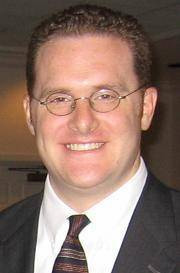
LOUISVILLE, Ky. (BP)–I just read another blog post by someone who is grieved by the response to Rob Bell’s book “Love Wins.” The complaint is that people aren’t giving Bell a fair hearing and that we all need to be a little bit more humble about our theological commitments.
The post is one among many sounding a similar theme. There seems to be the idea abroad that all doctrinal controversy is un-Christlike and unhelpful to the Kingdom. With respect to the Bell controversy in particular, some are saying that the tone has been too shrill and divisive before a watching world.
While it is true that controversy can be un-Christlike and thus unhelpful to the Kingdom, it is not true that all doctrinal controversy must be that way. Likewise, while there may be some responses to Bell that have been un-Christlike and unhelpful, it is not true that all of them have been that way. From the tweet heard round the world (“Farewell, Rob Bell”) to Justin Taylor’s initial post to Kevin DeYoung’s definitive review, we have seen sober biblical critiques and pastoral warnings about matters of eternal consequence. To dismiss those out of hand without seriously engaging the substance of the matter seems to me to be an evasion.
We all need to let the wisdom of the Proverbs guide how we engage in controversy (Proverbs 15:1-2; 16:21; 25:11), and we all need to be humble enough to repent when we transgress with a shrill tone (Psalm 19:14). As Spurgeon said it, “If you are drawn into controversy, use very hard arguments and very soft words. Frequently you cannot convince a man by tugging at his reason, but you can persuade him by winning his affections” (“Lectures to My Students,” p. 280).
That being said, there will be no rising above the fray on the doctrinal substance of this debate. At the end of the day, we have to have this conversation, and the constant appeal to the “tone of the debate” and “humility about our beliefs” seems less and less like the high road of Christlikeness and more and more like the low road of evasion.
Why is it a low road? Because it fails to see the eternal consequence of these matters in the lives of real people. I can’t say it any better than pastor Kevin DeYoung did at The Gospel Coalition website:
“No doubt, some Christians get worked up over the smallest controversies, making a forest fire out of a Yankee Candle. But there is an opposite danger — and that is to be so calm, so middle-of-the-road, so above-the-fray that you no longer feel the danger of false doctrine. You always sound analytical, never alarmed. Always crying for much-neglected conversation, never crying over a much-maligned cross. There is something worse than hurting feelings, and that is trampling upon human hearts.”
The New Testament does command us to “avoid foolish controversies” (Titus 3:9). But it also commands us to “contend earnestly for the faith” (Jude 3). For pastors and teachers, guarding the flock requires open controversy with those who speak “perverse things” that ensnare Jesus’ disciples (Acts 20:28-30). The New Testament in fact requires church leaders both “to exhort in sound doctrine and to refute those who contradict” (Titus 1:9).
The question facing us is this: Is the current debate a “foolish controversy” to be avoided (a la Titus 3:9), or does it involve fundamental doctrines of the “faith” to be contended for (a la Jude 3)? How you answer that question says a lot about where your sympathies lie on the substance of this debate (whether you’ve spoken publicly about your views or not).
Let’s not love controversy for controversy’s sake. Rather, let us love Christ and His Gospel enough to “speak the truth in love” (Ephesians 4:15), to correct those in opposition, and to pray that God might grant repentance to those who need to be won back to the truth (2 Timothy 2:25). Let’s be suspicious of ourselves and of our own sinful hearts (Galatians 6:1), but let’s not shrink back when God would have us to contend.
–30–
Denny Burk is dean of Boyce College in Louisville, Ky. This column first appeared at his blog, DennyBurk.com.

















